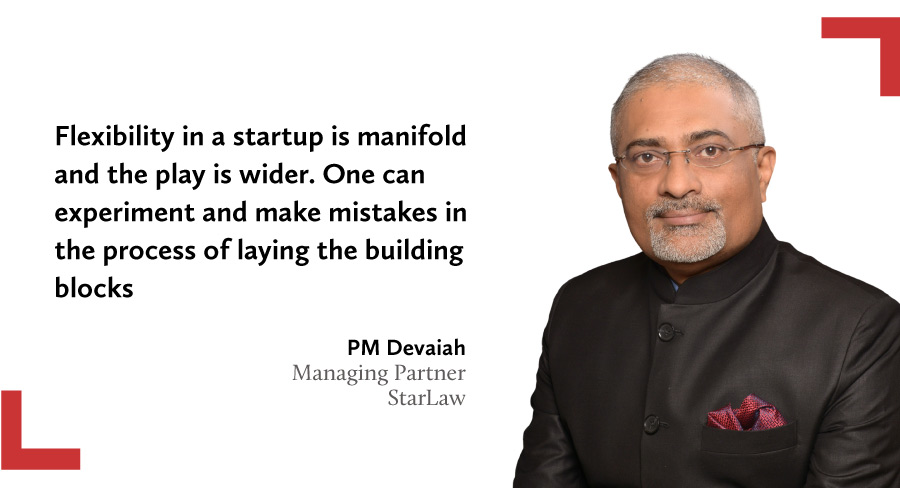What awaits in-house counsel when they are tasked with building a legal department for a startup? Katherine Abraham reports
With India’s population surpassing China’s this month, as per UN data, the government must ensure that the working age population is gainfully employed and has sufficient opportunities for development.
Startups are among the most important contributors to employment generation and in providing training to youth. Realising their importance, the government announced Startup India was one of its signature campaigns shortly after coming to power, introducing incentives and regulatory support measures for startups in areas such as funding, taxation, compliance and intellectual property.
As per figures from August 2021 collected by Invest India, the country’s national investment promotion agency, there are 77,000 startups across the country that are recognised by the Department for Promotion of Industry and Internal Trade.
In January last year, Union Minister of Commerce and Industry Piyush Goyal called for global venture capital (VC) funds to focus more on startups from tier-II and tier-III cities, as well as to invest in, promote and protect the intellectual property created by startups. Along with various exemptions, the ministry has provided incentives to investors and financiers within the startup ecosystem.
As small-scale businesses grow, the need for a separate legal department becomes more acute to take on the responsibilities of compliance, contracts, risk management and dispute resolution.
So, what must in-house counsel consider when they go about the complex task of building a legal department, which includes managing the interests of stakeholders, speeding up legal and especially the contractual processes, and preparing a newly built team for critical decision making?
Vivek Mittal, the global general counsel for Dr Reddy’s Laboratories in Mumbai, who heads a team of 75 legal professionals, says that “retention coupled with providing growth to existing talent” is one of the foremost challenges that a general counsel is faced with. He also mentions the need for the development of in-house skills to reduce reliance on outside counsel, in addition to cross-function/country collaboration and developing uniformity in work processes.
PM Devaiah, ex-general counsel for Adani and now the managing partner of boutique firm StarLaw in Bengaluru, says that a legal team “must be competent, fit the purpose and survive to see very many seasons. Organisational goals can be achieved only if the team is cohesive and led by a selfless and capable leader”.

You must be a
subscribersubscribersubscribersubscriber
to read this content, please
subscribesubscribesubscribesubscribe
today.
For group subscribers, please click here to access.
Interested in group subscription? Please contact us.



























